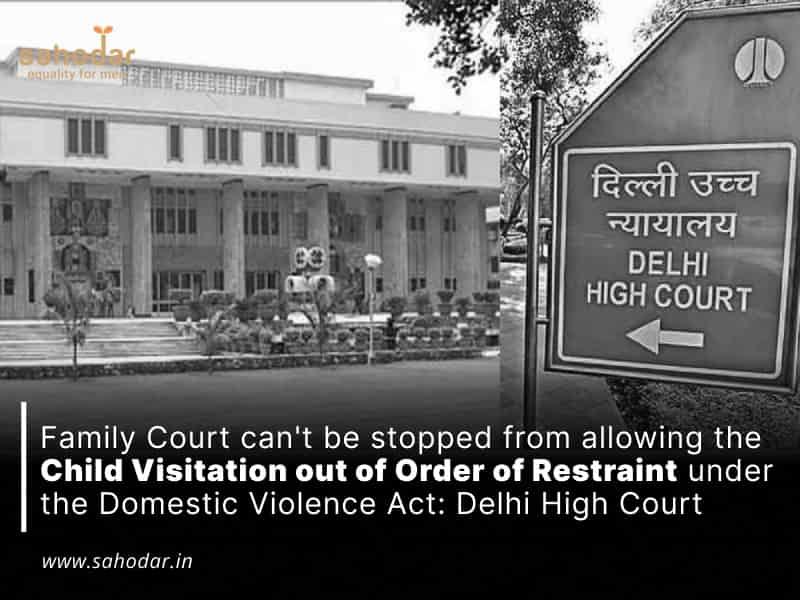The recent ruling by the Allahabad High Court states that a woman is eligible for maternity benefits under the Maternity Benefit Act 1961 even after the birth of her child.
According to the Court, the Maternity Benefit Act must be interpreted in the context of employment as a natural occurrence in life, and childbirth falls under this category.
Justice Ashutosh Srivastava opined that the Maternity Benefit Act of 1961 permits women to avail maternity leave even after giving birth to a child.
The judge also stated that this benefit could be extended to cases of legal adoption of children under three months of age. The purpose of the Act was to ensure that women have the right to pregnancy and maternity leave and have the flexibility to lead an autonomous life as both a mother and a worker, according to the court.
Saroj Kumari had filed a petition seeking a writ of certiorari against the order passed by the District Basic Shiksha Adhikari, Etah, which denied her maternity leave on the grounds that it cannot be granted after childbirth. Instead, the order stated that the petitioner can only apply for child care leave under the Maternity Benefit Act. Kumari was working as the headmistress of a primary school in Heerapur, Etah district, under the Board of Basic Education, Prayagraj, and her service conditions were governed by the Uttar Pradesh Basic Education (Teachers) Service Rules, 1981.
The High Court received a petition from Saroj Kumari, a headmistress at a primary school in Etah district, who was denied maternity leave after the birth of her child by the District Basic Shiksha Adhikari. Kumari had applied for maternity leave immediately after being discharged from the hospital, but her application was rejected due to incomplete annexures. When she applied again in the prescribed proforma, her request was rejected by the District Basic Education Officer, who stated that she was only eligible for child care leave and not maternity leave after giving birth. Feeling aggrieved by this decision, Kumari approached the High Court seeking a writ of certiorari against the order.
During the hearing, the petitioner argued that the purpose of the 1961 Act is to regulate the employment of women in certain establishments before and after childbirth, and to provide them with maternity leave and other benefits. The petitioner contended that the denial of maternity leave on the ground that the child was already born is illegal and erroneous.
The petitioner argued that the denial of maternity leave on the grounds of childbirth was illegal and incorrect, as the Maternity Benefit Act was enacted to regulate women’s employment before and after childbirth and to provide them with certain benefits. The petitioner also asserted that child care leave is distinct from maternity leave and should not be imposed on her.
Furthermore, the petitioner pointed out that her salary had been stopped since November and December 2022, which was unjustified. The respondents, on the other hand, defended the rejection order and claimed that it was valid.
The Court scrutinized the objective behind the enactment of the 1961 Act, which is to govern the employment of women in specific establishments for specific durations prior to and following childbirth and to grant maternity benefits and other related benefits.
Additionally, the Court examined Section 5 of the Act, which pertains to the disbursement of maternity benefits to a woman for the duration of her real absence, starting from the period promptly preceding the date of her delivery, the actual day of delivery, and any subsequent period. The provision also lays down the maximum period for which a woman can avail maternity benefit.
The Court, after examining the preamble and provisions of the 1961 Act, noted that the Parliament enacted this law to ensure that a woman’s absence from work due to childbirth does not affect her right to receive wages during that period or during the leave granted for taking care of the child after delivery.
The Court emphasized that Section 5 of the 1961 Act provides for a woman’s entitlement to maternity leave even after the birth of her child. The Court further explained that upon examining the Preamble of the Act, along with various provisions such as the third proviso to sub-section 3 of Section 5 and sub-section 4 of Section 5, it is evident that maternity benefit can be extended even after the birth of a child. In fact, such benefits can even be extended in cases where a child is legally adopted and is less than three months old.
The Court noted that while maternity leave can be granted even after the birth of the child, it may not necessarily be for the entire duration of 180 days or 26 weeks.
The Court referred to the decision of the Supreme Court in Deepika Singh v. Central Administrative Tribunal and others (2022) and pointed out that offering the option of child care leave to the petitioner does not mean that she is not entitled to maternity benefit. The Court emphasized that maternity benefit and child care leave serve different purposes and are not interchangeable.
The Court emphasized that a purposive interpretation of the provisions of the 1961 Act is necessary as the grant of maternity leave aims to enable women to continue working. The Court recognized that without such provisions, women may be forced to give up their jobs due to social circumstances surrounding childbirth. The Court further stated that employers cannot view childbirth as a hindrance to employment and that maternity benefit provisions should be interpreted in the context of childbirth as a natural part of life.
The Court quashed the District Basic Education Officer’s order, which had denied the petitioner maternity leave after the birth of her child. The officer was instructed to pay the petitioner’s outstanding salary arrears and monthly salary as it becomes due. The officer was also directed to issue fresh orders, taking into account the provisions of the Act.
Source: https://www.barandbench.com/news/litigation/woman-entitled-to-maternity-leave-even-after-birth-of-child-allahabad-high-court

